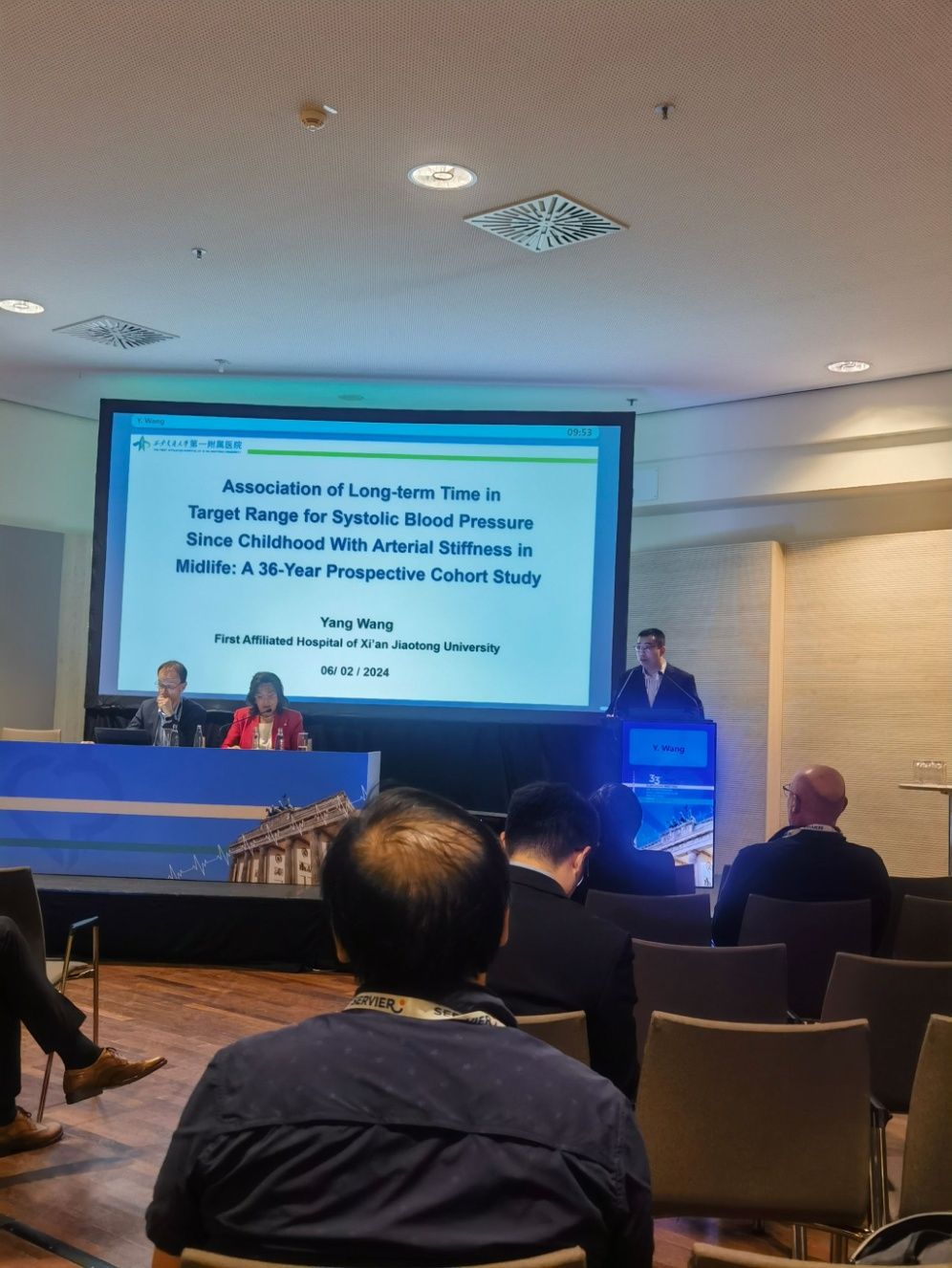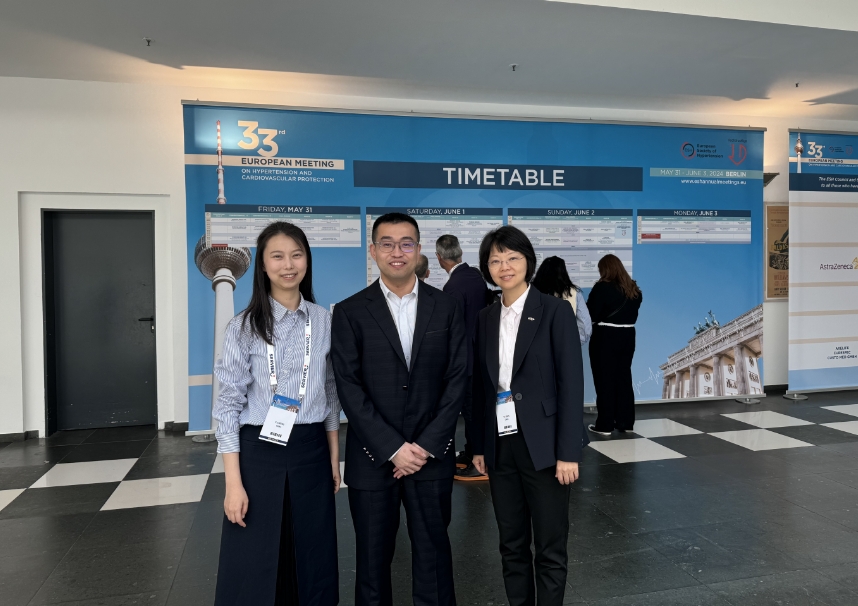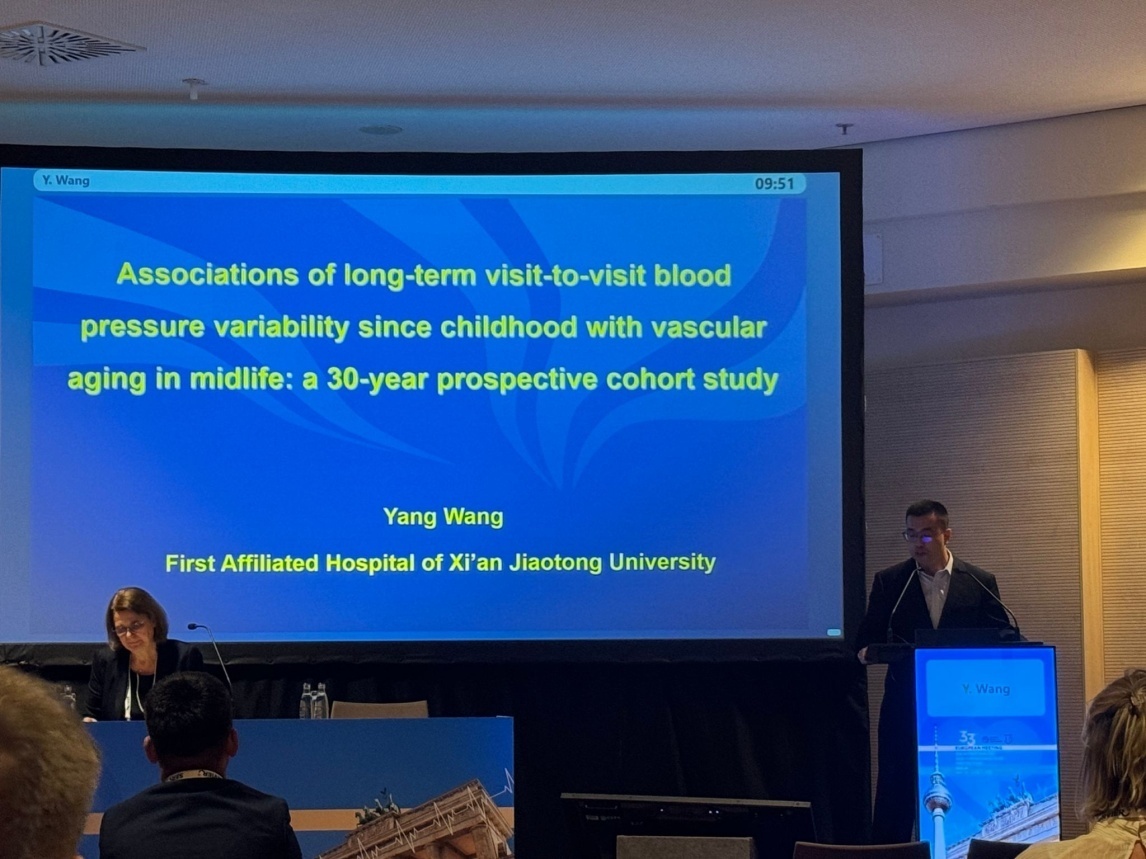Recently, the 33rd Annual Meeting of European Society of Hypertension (ESH) was held in Berlin, Germany. Associate Research Professor Wang Yang from Professor Mu Jianjun’s team of the First Affiliated Hospital (FAH) of Xi'an Jiaotong University (XJTU) delivered two oral presentations entitled “Associations of long-term visit-to-visit blood pressure variability since childhood with vascular aging in midlife: a 30-year prospective cohort study” and “Association of long-term time in target range (TTR) for systolic blood pressure since childhood with arterial stiffness in midlife: a 36-year prospective cohort study” at ESH 2024, respectively.
Based on the Hanzhong Adolescent Hypertension Study, PhD Wang Yang gave a presentation entitled “Associations of long-term visit-to-visit blood pressure variability since childhood with vascular aging in midlife: a 30-year prospective cohort study”, which, for the first time, comprehensively analyzed the relationship between long-term blood pressure variability and the risk of vascular aging in middle age, such as carotid hypertrophy, carotid plaque and arteriosclerosis. This study has found that higher blood pressure variability from children to adults may increase the risk of vascular aging in midlife, independent of the average blood pressure or cumulative blood pressure exposure. Therefore, early long-term blood pressure variability may become an index to predict cardiovascular diseases in later life, which is of significance for in-depth understanding of the relationship between hypertension and vascular aging and exploring early prevention and control measures.


Subsequently, PhD Wang Yang delivered an oral presentation entitled “Association of long-term time in target range (TTR) for systolic blood pressure since childhood with arterial stiffness in midlife: a 36-year prospective cohort study”, demonstrating that the risk of arteriosclerosis is gradually decreased with the increase of systolic blood pressure TTR from childhood, independent of the average blood pressure or blood pressure variability. Consequently, early systolic blood pressure TTR may become a controllable risk factor for cardiovascular disease in the future. The above findings suggest that early and persistent blood pressure control plays a vital role in preventing midlife arteriosclerosis, exploring early prevention and control and reducing long-term cardiovascular risk.

These two studies provide novel insights for understanding the long-term relationship between blood pressure variability and vascular health, which not only emphasize the importance of early blood pressure monitoring and management, but also provide potential new directions for prevention strategies of cardiovascular diseases.